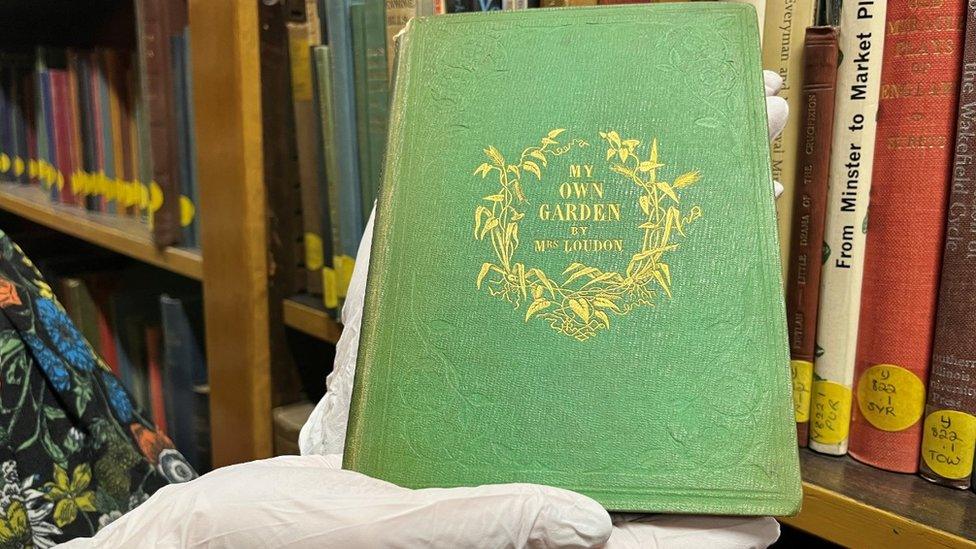Arsenic-laced books removed from National Library of France
- Published

The Bibliotheque Nationale de France in Paris holds more than 16 million books
Four books have been removed from France's national library over concerns their covers may be laced with poisonous arsenic.
The 19th century volumes, printed in Britain, all have emerald green covers. Arsenic was commonly used to colour books at the time.
The texts taken off the shelves were identified as potentially dangerous by University of Delaware researchers.
The library said the books would only cause minor harm from handling them.
"We have put these works in quarantine and an external laboratory will analyse them to evaluate how much arsenic is present in each volume," said a spokesperson from the National Library of France.
The four books include the 1862-1863 book of the Royal Horticultural Society, two volumes of Edward Hayes' "The Ballads of Ireland" from 1855, and an 1856 bilingual anthology of Romanian poetry by Henry Stanley.
The list of potentially hazardous titles was put together by the Poison Book Project, external. The initiative is run by researchers from the University of Delaware in collaboration with Delaware's Winterthur Museum.
The team has tested hundreds of book covers for heavy metals since 2019 and drawn up a list of titles that are potentially dangerous.
Four copies on the list were among the National Library of France's collection of more than 16 million books.
Victorian-era publishers used arsenic to colour book bindings, in pigments such as Paris Green, Emerald Green and Scheele's Green, named after a German-born chemist.
The Poison Book Project says books laced with the toxin should be stored with caution and could present a health risk to those handling them.
In response to finding some affected titles within its collection, the National Library of France said it would also examine other books "beyond the Poison Book Project list".
The World Health Organization, external warns against long-term exposure to arsenic from drinking-water and food, saying the substance is "highly toxic in its inorganic form". They don't give any specific advice for handling items containing it.

My Own Garden: The Young Gardener's Yearbook was found in a Leeds library in 2022
In 2022, a rare book laced with arsenic was discovered by librarians in Leeds.
My Own Garden: The Young Gardener's Yearbook was published in 1855 and has a vivid green cover.
Senior librarian Rhian Isaac discovered the book while cross-referencing the library's collection against the Poison Book Project's global database, external of known toxic texts.
Books have also more recently been removed from shelves in Germany as a precaution, over possible arsenic contamination.
- Published28 October 2022
